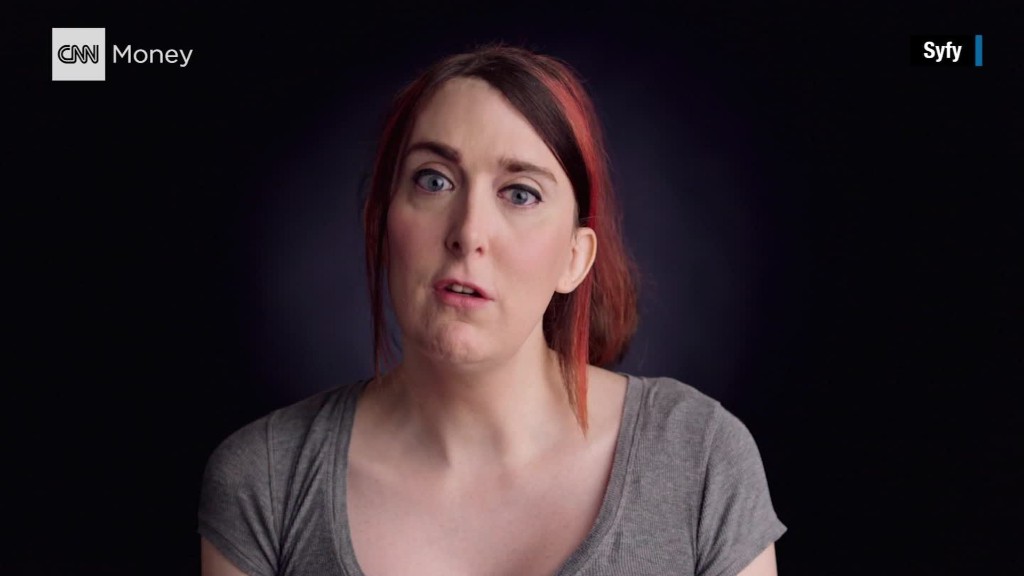
200 death threats later, online harassment is a new kind of normal for game developer Brianna Wu. But she refuses to let it silence her.
Wu is one of the subjects in the latest episode of the new Syfy Network series, "The Internet Ruined My Life."
Wu is the cofounder and CEO of a gaming studio, Giant Spacekat, which make games that empower women, not objectify them. Its first game, Revolution 60, centers on a team of female special operatives.
But this hasn't come easy for Wu and others like her.
"The truth is, the game industry is a really incredibly difficult place for women to work," said Wu, in the episode which airs on Wednesday night.
Nothing showcases the push back against women in gaming more than GamerGate. The online movement has made headlines for its vitriol aimed at women, like Wu, which often comes in the form of threats via Twitter. It can involve "doxxing," in which trolls use public platforms to threaten someone's safety by exposing personal information like home addresses.
On the other side, those targeting women like Wu also say they've been the recipients of death threats and bomb scares.
In the episode of "The Internet Ruined My Life," Wu explains why it's important that video games represent women in positive ways -- not just as the "damsels in distress." Women make up nearly half of all gamers, according to the Entertainment Software Association.
Wu posted a meme on Twitter in 2014 in an attempt to point out "how ridiculous the movement was." The blowback was fierce and still continues to this day.
How one hashtag can ruin your life
"This was the tweet that ruined my life," said Wu, of the meme that featured a young boy, looking frustrated, and a series of texts mocking GamerGate, like "Bases entire identity on games ... Feels like a badass" and "Lectures women on how to respond ... to the problems he causes."
Within minutes, she was bombarded with threats.
"Your dead mutilated corpse will be on the front page of Jezebel tomorrow," read one tweet.
By July 2015, Wu said that she had received 108 death threats. For a time, she fled her home and hopped from hotel to hotel.
Today, the threats number 200, Wu told CNNMoney. When I met with her on Monday in Austin, Texas, she received yet another threat on Twitter while waiting for me in the lobby. She said the police have advised her to "stay off technology."
Ari Ezra Waldman, an associate professor of law at New York Law School, said law enforcement lags in protecting citizens who get online threats.
SXSW online harassment summit tackles tough topics -- but few attended
"The law is about harassment in the physical world," said Waldman, adding that some law enforcement will dismiss online threats as "just words."
"But they can produce very real psychological harm and physical danger," he added, noting that new protections would help highlight the severity of what's happening online.
That's the main reason Wu said she decided to participate in the Syfy series. She said she has turned down several reality TV show offers in the past.
"I really want people to understand the human toll," she said, adding that there's a high cost in making herself visible.
"I'm sure when the [episode] comes out, I will get more death threats, rape threats, and people insulting my looks. ... But I thought there would be public value in putting it out there."

